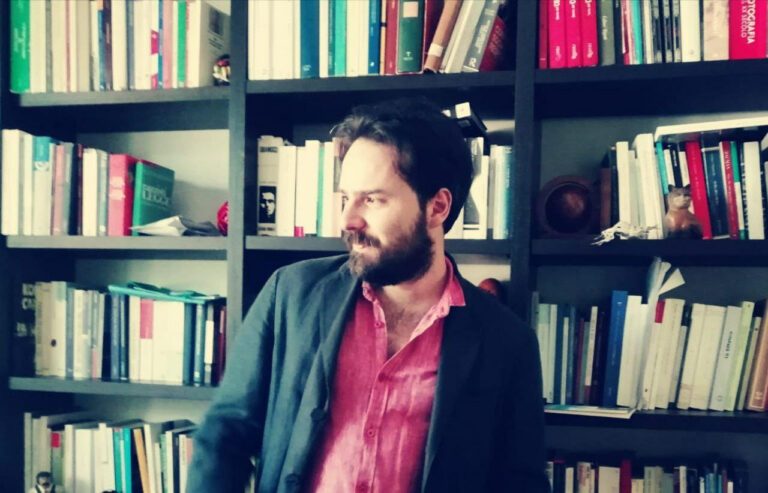CAS SEE Seminars with Guests: Giuseppe Micciarelli
Home- CAS SEE Seminars with Guests: Giuseppe Micciarelli
Beyond reformism and revolution: the strategy of “legal hacking” in the experience of urban commons
On Thursday, March 24th at 12 am CET we will hosted the CAS SEE Seminar with Giuseppe Micciarelli, presented by our Fellow Valeria Graziano.
In recent years, we witnessed a proliferation of theories and practices of the commons, with different declinations. At the core of many cities, we can now find a «grammar» of urban commons that is often part of participatory toolkits used within programs of regeneration of underused and/or neglected areas, and implemented both by local governments but also by forms of «insurgent citizenship». It is for this reason that a new, unfamiliar vocabulary has emerged and begun to spread across social movements and practices of self-organization: “legal tools for collective management”, a “creative use of the law”, “collaborative administration” and “governance”. Is this just another trap to assimilate social antagonism into the fabric of neoliberalism, or can this be a way of challenging it on its own ground, by trying to hack its logics and devices?
The hegemonic strategy of neoliberalism of “starving the best” is not an attempt to do away with the State, but to re-functionalize it with a different logic, values, and powers. Perhaps then, it is possible to address this strategy on its own ground, by trying to overturn its logic of subsumption through the tactics of certain political and legal hacks.
The so-called ‘emerging urban commons’ are governed with mutualistic and solidary practices of citizenship that are then capable of reshaping governance, not by building archipelagos of autonomy, but by branching out into other networks that exploit the interstices offered by the new spaces of normative co-production between public and private domains. This re-functionalization of public and private powers to the logic of the commons is a strategy that we can call a “hacking method”, that is, the emergence of a legal framework that is immanent to citizens’ collective action. As such, it is very different from a “defensive” use of the law or the claiming of rights, but at the same time, it intercepts both.
The attempt of legal hacking in the urban commons is thus to use grassroots drives to set up new participatory institutions and to enforce regulatory changes that also involve urban planning, accounting, economics, and many other topics that politically design the framework of what counts as “illegal”.

Giuseppe Micciarelli is a political philosopher and legal sociologist. He works at the University of Salerno and collaborates with Universitas Meracatorum and University IUAV of Venice
His research covers the dual strands of transformations of contemporary democracy and the creation of new institutions, both of which arise from the neo-liberal revolution, in addition to those that may yet come from the multiple innovations of social movements and civil society.
The creative use of the law that he is developing uses the new processes of normative co-production opened up by the metamorphosis of global law to search for new and unimagined spaces of democratization. Some examples are: the “urban and collective civic use of emerging commons”, new legal institutions developed with other activists and colleagues in his hometown, Naples, and now adopted by some municipalities within and outside of Italy; a new policy proposal named creative and care income [pdf] emerged during the pandemic crisis [video]
https://www.youtube.com/watch?v=0hhXtyRl5OUhttps://youtu.be/3L6GIsXqeMA
Watch Video
UNIRI The Moise Palace: Cres Island
An education center of the University of Rijeka is five-hundred-year-old patrician townhouse and the largest Renaissance palace on the Croatian islands. A venue and forum for various scientific and research activities, it welcomes visiting academics, students
News
CAS SEE latest posts
17 March 2022 Call for Applicants: 5th Summer School “The Project of Theory” Call for Applicants: 5th Summer School “The Project of Theory” Home Call for Applicants:… Read More
18 March 2022 CAS SEE Seminars with Guests: Giuseppe Micciarelli CAS SEE Seminars with Guests: Giuseppe Micciarelli Home CAS SEE Seminars with Guests: Giuseppe Micciarelli… Read More
24 March 2022 CAS SEE Seminars with Guests: Ivan Rajković CAS SEE Seminars with Guests: Ivan Rajković Home CAS SEE Seminars with Guests: Ivan Rajković Equivalences… Read More




